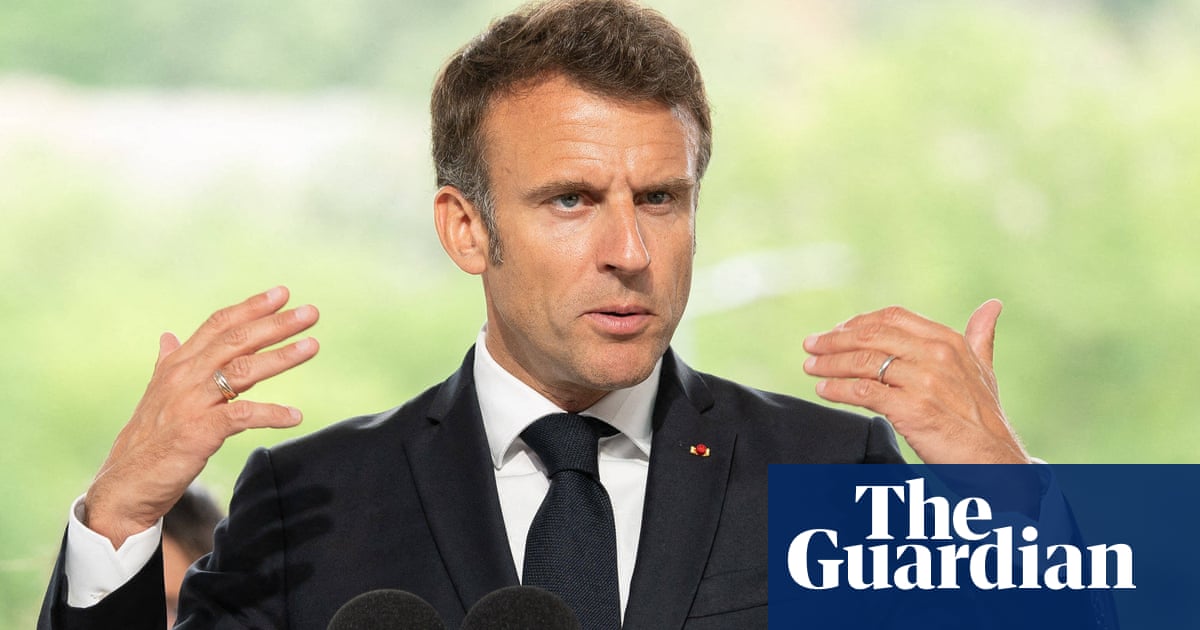
Developing countries could receive long-promised funds to help them tackle the climate crisis as soon as next year, in a major boost for the prospects of success at the Cop26 climate summit, the climate economist Nicholas Stern has said.
Rich countries pledged in 2009 to provide at least $100bn (£73bn) a year to the developing world by 2020, a target that has been missed. But recent promises of additional cash from the US, the EU and others have lifted the prospects.
“I think that we will probably hit the $100bn for next year,” said Lord Stern, the chair of the Grantham Institute for Climate Change at the London School of Economics, in an interview with the Guardian. “We could start to get bilateral flows [from donor countries to poor nations] approaching $50bn to $60bn because if the US came up then others would come up as well. The finance which went to the fossil fuels, which the G7 agreed to phase out quickly, could be reoriented towards renewables.”
He predicted that the global publicly funded development banks, such as the World Bank – where he served as chief economist from 2000 to 2003 – would also step up their efforts at a series of meetings next month. “They [the development banks] will be increasing their volumes and they will be increasing the proportions focused on climate. So my own view is we must push very hard to get the $100bn, it’s not going to be this year so it should be next year, and I think it could well be.”
Joe Biden, the US president, pledged at the UN general assembly on Tuesday that the US would double its climate finance, to $11.4bn a year by 2025.
China also pledged at UNGA to stop funding the development of new coal-fired power plants overseas, a significant move as China was the only major player still intending to fund new plants in poorer developing nations. At least 54 gigawatts of China-backed coal power projects, which are in active development but not yet under construction, could be affected by the pledge from China’s president, Xi Jinping, according to the Centre for Research on Energy and Clean Air.
“Those events are positive, and key parts of what we have said we were looking for [at Cop26],” Stern said. “We have been looking for these movements from the US and China for some time, and they constitute really positive developments. Of course, we need to do much more in terms of finance – bilateral, multilateral and private – and for China to start reducing coal strongly at home.”
Stern, who in 2006 led a landmark review of the economics of climate change that proved conclusively that cutting greenhouse gas emissions would be a fraction of the cost of climate breakdown, has been serving on a high-level advisory panel to the UK government on Cop26.
The issue of climate finance – cash for poor countries to help them cut greenhouse gas emissions and cope with the impacts of extreme weather – has weighed heavily on the summit. A report by the OECD confirmed just over a week ago what previous indicative assessments had found, that climate finance in 2019 reached only about $80bn, well short of the target.
Developing countries, which tend to be more vulnerable than the rich world to the impacts of climate breakdown, have viewed the missed target as a betrayal of trust from the rich world, which has contributed most to the climate crisis.
But Stern said countries must look beyond the totemic $100bn target, which was promised to continue annually to 2025, and further ahead to the prospects for finance in the second half of this decade. Private sector funding could play a much greater role then, he predicted.
“My instincts now are not to get focused only on the $100bn,” he said. “What we should be looking for is financial packages with very strong leverage rather than one aggregate number. [We should be] looking for big private-sector multipliers.”
More funding should also be directed towards helping poor countries adapt to the impacts of extreme weather, he added. At present, the bulk of climate finance flows to middle-income developing countries, to help them cut greenhouse gas emissions. But many such projects, such as windfarms or solar panels, provide a financial return and could be profitable in any case. Far harder to finance are projects that protect people and their livelihoods, but do not turn a profit.
Stern said that recognising the value of adaptation was more important than a strict division of funds. “Raising the profile of resilience and adaptation [is important], and I think there will be progress on that, but rather than saying 50% should be mitigation [reducing emissions] and 50% should be adaptation in finance, I would rather say there should be a strong component of resilience in climate finance and climate action,” he said.
The UN security council also met at UNGA this week to warn global governments that the climate crisis was increasingly a question of national security. Michael Martin, the Irish taoiseach, who led the discussions as Ireland holds the revolving presidency of the security council, said: “The impact of climate change is global and our collective security is at risk. We have seen how climate change is already contributing to conflict in many parts of the world. From the Sahel to Iraq, this council has recognised that climate change is one of the factors driving conflict and fragility.”
Boris Johnson, the British prime minister, used his speech at UNGA to urge global leaders to redouble their efforts at Cop26. He repeated his mantra of “cash, coal, cars and trees”, emphasising that climate finance is a key aim for the UK hosts at the summit.
Invoking Sophocles and Kermit the Frog in a wide-ranging speech, Johnson compared the world to a rowdy teenager that had begun to indulge in “all sorts of activity that is not only potentially embarrassing but also terminal … It is time for humanity to grow up.”
Mary Robinson, former president of Ireland, said: “I got a little irritated. If the UK itself would only grow up – stop the coal plant in Cumbria, not operate Cambo [oilfield], and restore aid to 0.7% of GDP, that would be leadership.”
But she conceded: “He does have the capacity to galvanise attention, and at least it is attention of the right kind, rather than being Trump-like on the wrong side.”












